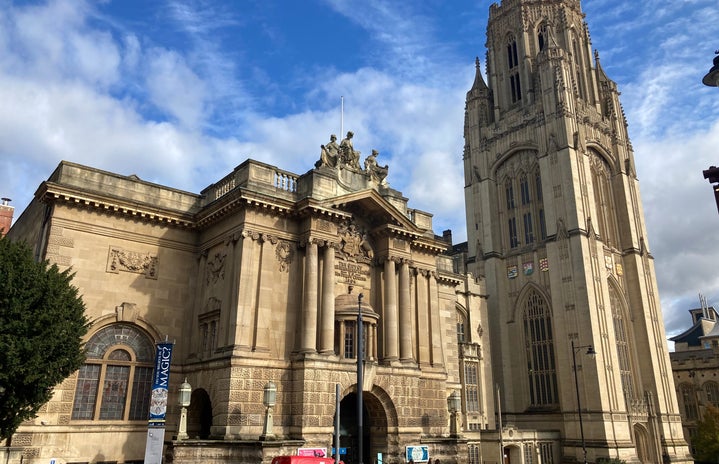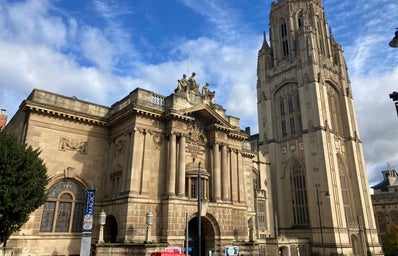On the 22nd of October, Vice Chancellor Judith Squires hosted the virtual panel discussion ‘Towards a Decolonised University’ to mark the unveiling of the Be More Empowered (BME) for Success portraits in Will’s Memorial Hall that celebrate the Black, Asian and Minority Ethnic (BAME) alumni of the university. In her introduction to the event, Squires outlined that the panel discussion, focussed on the impact of colonial power structures on resources and teaching, was part of a wider ‘commitment to interrogating the legacy of colonialism’ throughout the institution. The panel consisted of BAME members of the staff and student body: Olivette Otele, Professor of the History of Slavery, Leon Tikly, Professor of Education, Hillary Gyebo-Ababio, former SU Undergraduate Education Officer and current NUS UK Vice President, and Eva Larkai, 4th year medical student and President of BME Medics. Each spoke on the problems specific to the university, and proposed solutions that could be taken to decolonise resources, research, and teaching.
Before handing over to the panellists, Squires briefly outlined some of the changes already in effect. She mentioned the establishment of the new Anti-Racism Steering Group, created ‘to help the University develop strategies and take action to address individual, cultural and structural racism’, and their responsibility for the renaming of the Colston Street accommodation to ‘No 33’. She also announced a £1 million scholarship fund to aid disadvantaged BAME students as a measure that the University had taken to widen its participation. However, whilst this certainly shows an effort on behalf of the University to interrogate its institutional biases, the arguments posed by the panellists later in the discussion indicated the need to do more.
Professor Olivette Otele began the discussion by confronting the racial biases in academia particularly within in her own subject field, History. She argued that the largely euro-centric ‘narrative of the past has shaped our present’ and it was important to systemically challenge this by including the voices of minority ethnic scholars. She remarked upon the under-representation of minority ethnic groups within academia and questioned whether this reflected an ‘an anxiety to lose what we are familiar with.’ Perhaps by this she means that the University often attempts to provide students with the “classic” topics that one would expect to study at a Russell Group University but often fails to include topics and voices within compulsory modules that would broaden their perspectives outside of their cultural norms. She later expanded on this point by remarking that even when topics relevant to decolonisation were available, they were often taught through the lens of white scholarly work and not through work produced by representatives from the former colonised communities. Of course, this problem is not just specific to Bristol rather one that plagues the entire education system, but as Otele concluded it is an issue the University needs to confront to show their commitment to fighting against racial inequality.
Professor Leon Tikly further examined the necessity of including global perspectives, remarking that intaking other perspectives would ensure that the curriculum became more relevant both to BAME students and to current global issues. He cited the national attainment gap , where BAME students are 13% less likely to achieve a First or Second class degree than their white counterparts and queried whether this was due to the fact that they couldn’t relate or didn’t feel accounted for by their courses. He argued that diversifying the curriculum could tackle this, as perhaps it would increase the participation of BAME students as they would better accommodate to their needs. He also remarked that an increasingly diverse curriculum could break down ‘traditional barriers’ between the University and the wider community, creating a space that incites activism on global issues such as poverty. Despite remarking on these challenges, Tikly appeared faithful in the University’s pledges. He mentioned the actions already in place such as ‘The Curriculum Enhancement Project’ ,the ‘Widening Participation Agenda’, and collaboration with Bristol-based activist group CARGO and later stated that the University had ‘potential to change’ if they kept up this energy.
Picking up on this point, Hillary Gyebo-Ababio stated that the University could continue its momentum by keeping ‘humility… at the heart of change’. By this she meant that the University should recognise that the foundation for change had been laid out by students, student organisations, staff and other grassroot organisations. For the University to improve itself they should ‘centre work on those who have laid the groundwork and not [themselves]’ , seeking to amplifying the voices of activists and support them through resources and funding. Furthermore, she repeatedly emphasised that the University should ‘be bold’ in their approach and that now, especially in this current climate, was not a time for complacency.
To conclude the discussion, Eva Larkai talked more specifically about changes being made in the Bristol Medical school. She addressed the legacy of colonialism in medicine, particularly in relation to symptom diagnosis where medical students aren’t trained on identifying medical illnesses on darker skin tones. She pointed out the real dangers of this in practice and the urgent need to re-assess how symptom diagnosis is taught. On this subject however she did recall the university’s acknowledgement of this issue. She referenced the 30-page response she received to a letter she wrote to the medical school, where they expressed their determination to meet her specific demands, for example by re-evaluating content creation. Along with this, Larkai also credited several student organisations that were engaging with the medical school to create tangible change. This included the BRMS-MART (Bristol Medical School Anti-Racism Taskforce) and the BAME Medical Student Group.
Overall, the panel discussion was illuminating of the colonial legacy here at the University. Whilst many of its BAME population have always been aware of these issues, it was encouraging to finally see them come to the light. The increasing support for and amplification of BAME and decolonising movements does show a real energy for change that the University can be credited for, but quoting Gyebo-Ababio in her conclusion ‘change is a long and uncomfortable process’. The University needs to maintain its dedication to decolonisation for the long haul and not only be proactive when racial issues are topical.



